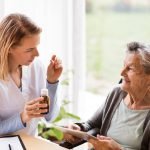Scientists find the key to remission in prediabetes
Prediabetes, a precursor to Type 2 diabetes, is associated with increased risks of heart attacks, kidney disease, eye conditions, and various cancers, heightening the...
Scientists discover a new risk factor for type 2 diabetes and mental diseases
In various communities worldwide, marriages between close relatives, a practice known as consanguinity, are common.
A new study reveals that such unions might heighten the...
Scientists find new way to treat pancreatic cancer
Pancreatic cancer stands as one of the deadliest forms of cancer, often diagnosed at advanced stages, making early intervention challenging and prognosis poor.
Given its...
Vital vitamins for heart health you need to know
Heart health is paramount for overall well-being, requiring a balanced approach that includes exercise, a nutritious diet, and a sufficient intake of essential vitamins.
Here,...
Scientists find a better solution for low back pain
Low back pain can be significantly debilitating and is one of the prevalent health concerns people face.
People spend a lot of money trying to...
Common blood pressure drugs may not prevent heart attacks effectively, study finds
Beta blockers are a cornerstone in managing various heart conditions, and are typically prescribed post-heart attack to mitigate the risk of recurrence.
However, a recent...
New diabetes drugs can benefit your kidney and lung health
Diabetes is a condition that affects the way the body uses blood sugar, and it’s very common, affecting millions worldwide.
There are different medications to...
Gut bacteria link to Parkinson’s disease, study confirms
Parkinson’s disease is a serious illness that impacts millions of lives globally.
It usually affects older adults, causing them to have trouble moving, shaking, stiffness,...
Scientists use innovative brain activity to monitor treatment-resistant depression
A team of eminent clinicians, engineers, and neuroscientists has pioneered a revolutionary approach to treating treatment-resistant depression, unveiling a distinctive brain activity pattern indicative...
People with autism have higher risks of chronic health problems
A groundbreaking study conducted by the University of Cambridge reveals that individuals with autism are more susceptible to a variety of chronic physical health...










